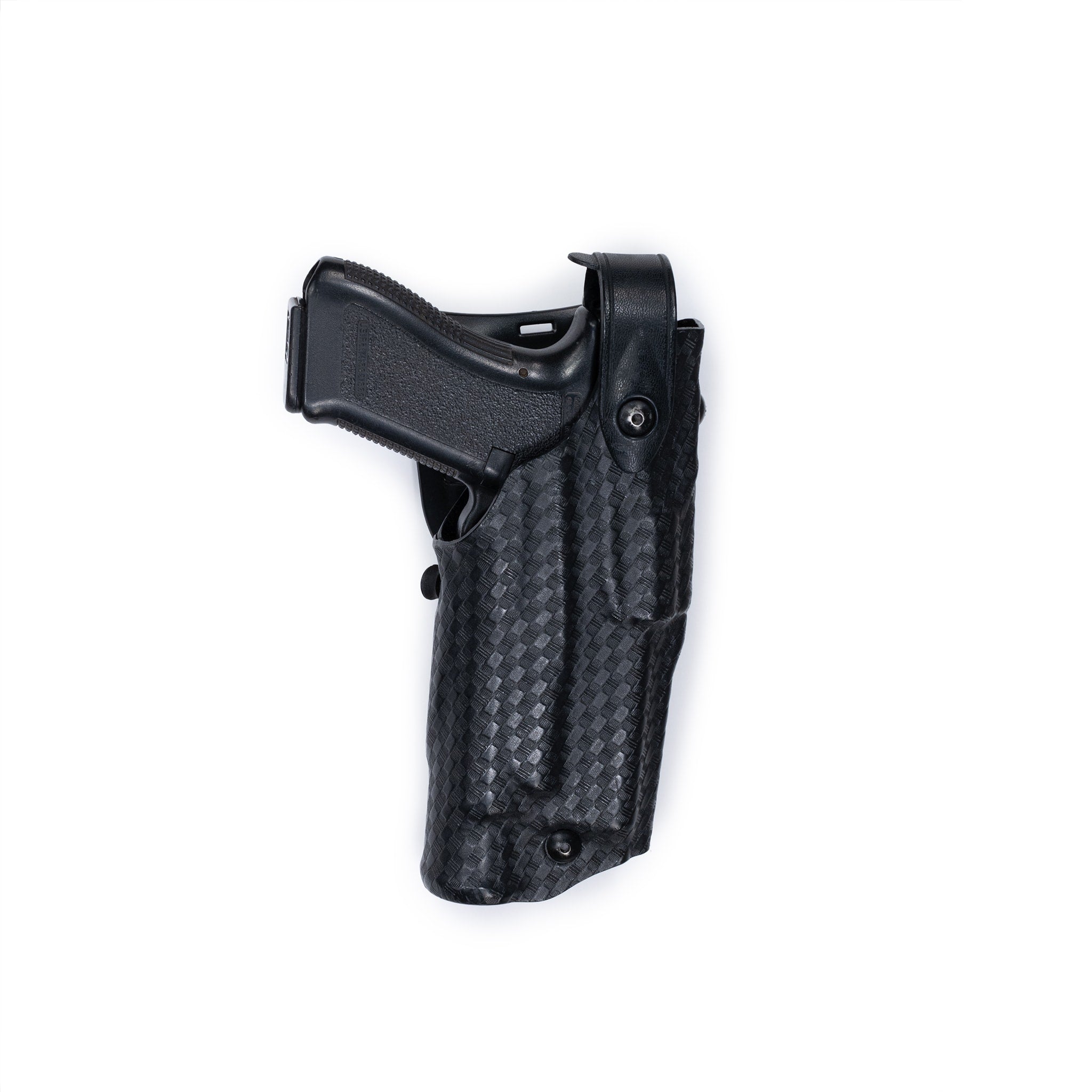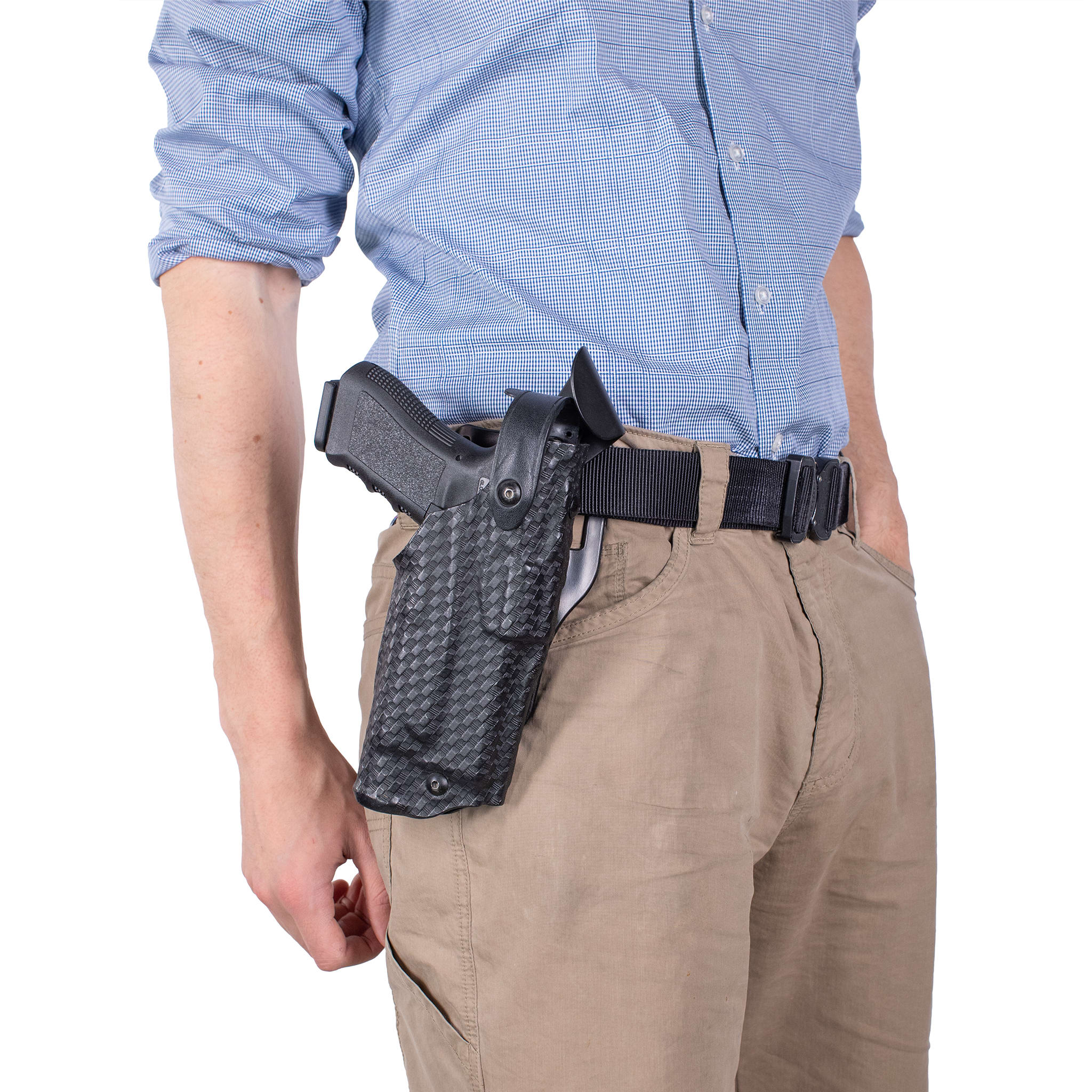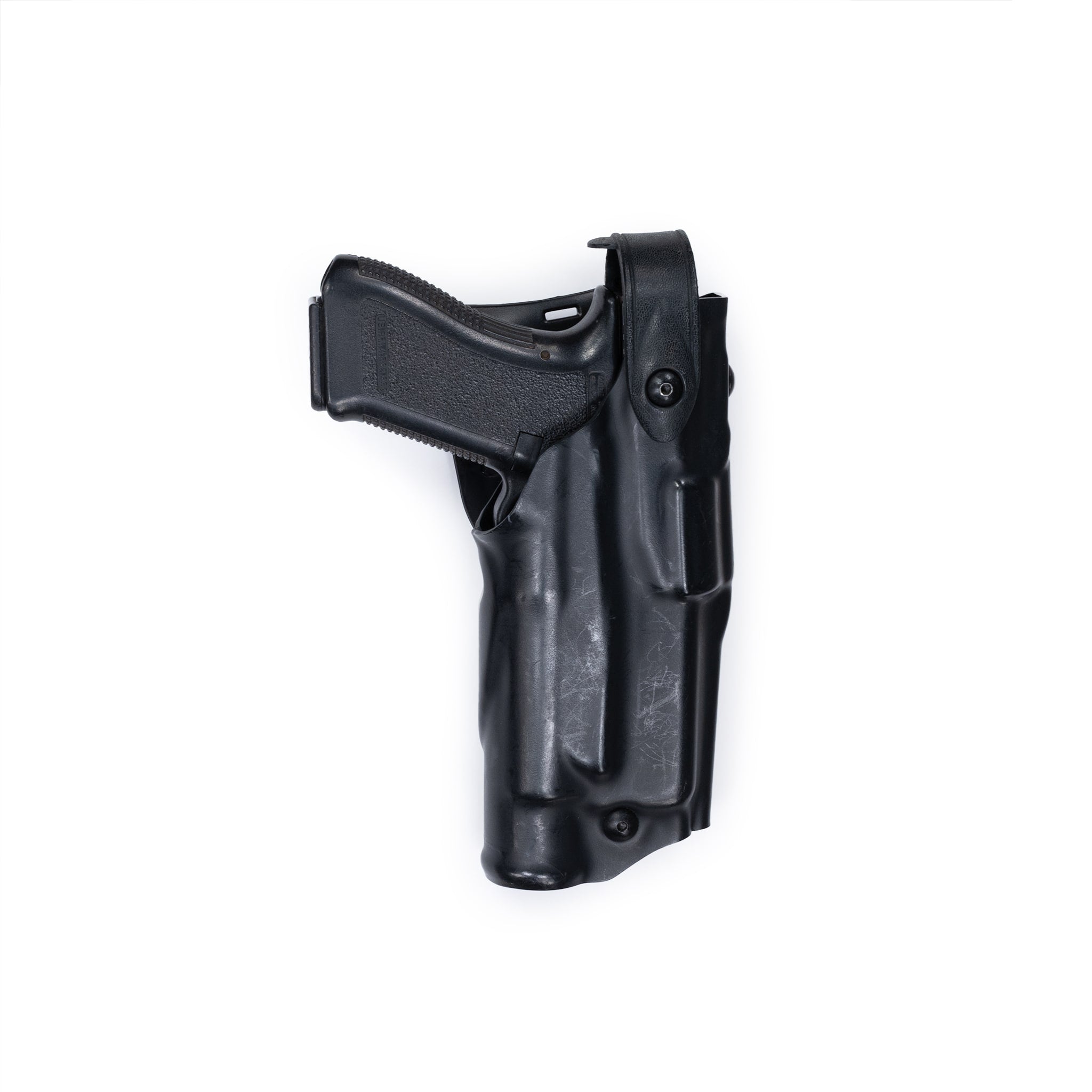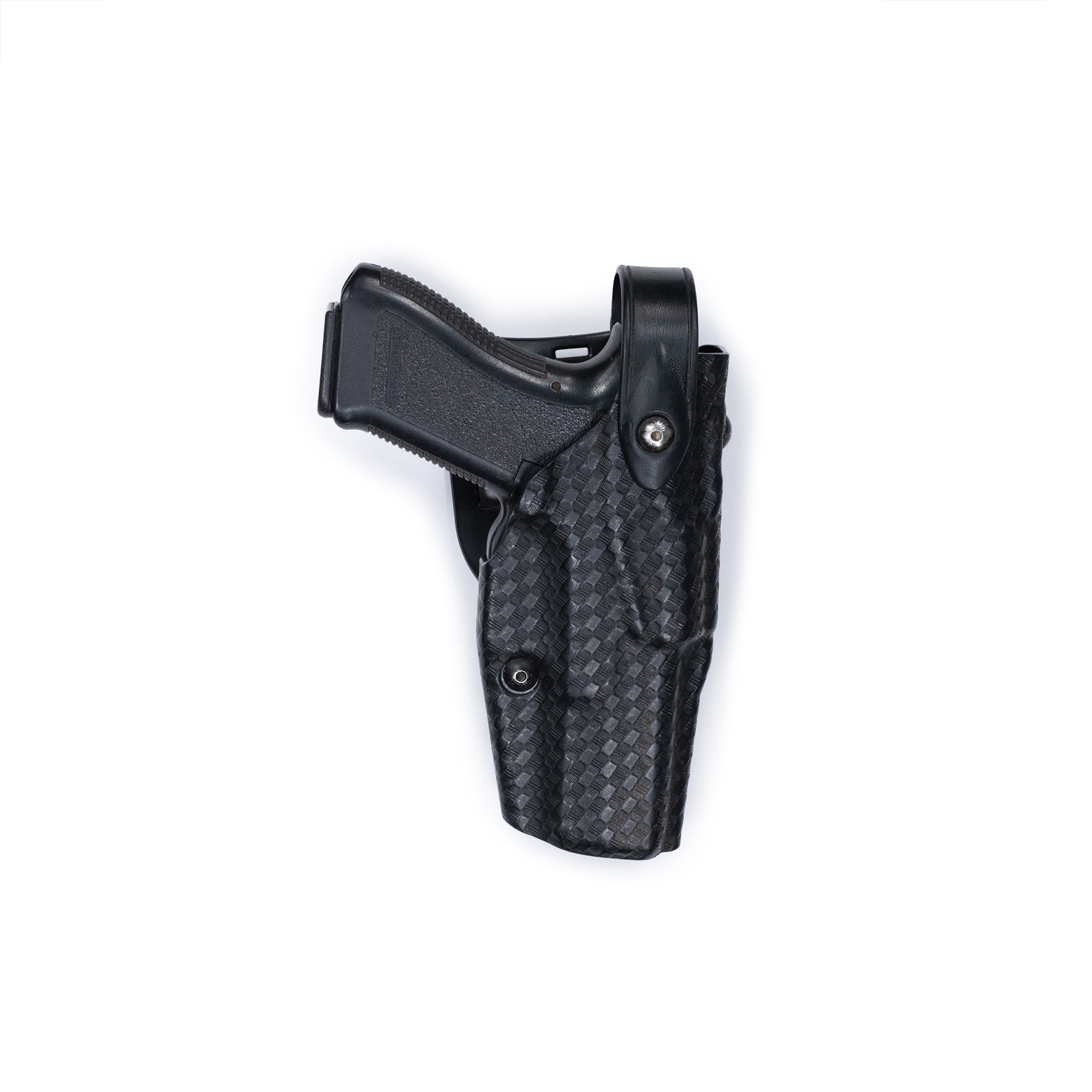Safariland is known especially among law enforcement officers for it's retention holsters, and these are about as good as it gets.
These holsters specifically made for Glock Pistols (See variants for model) feature the ability to effectively "lock" the gun in place and add new "levels" of retention. To save you from the agony of having to browse the god-awful Safariland website and decipher it's Da-Vinci-code-tier product acronyms & numbers, here's a quick crash course for dummies on everything you need to know to pick a holster:
ALS vs. SLS, & "Sentry"
ALS - locks the firearm into place immediately upon holstering. It has a small discrete nub that you can disengage with a natural drawing motion. ALS-only holsters have only one level of retention.
SLS - A rotating strap that crosses over the back of the holster. It requires the user to push down and flip the strap out of the way, and is one of the more visible and iconic retention systems on safariland holsters. SLS straps add two levels of retention.
ALS/SLS "Sentry" mechanisms - A small cover / barrier that requires the user to disengage before operating the ALS or SLS mechanism. While not commonly found, they add one level of retention.
Grab Guards - A large piece of curved kydex that provides a hood-like barrier to guard against others trying to manipulate your firearm. While grab guards do not add an additional level of retention, they do provide extra protection.
Retention Levels
Retention levels refer to how many distinct 'motions' are required to draw the pistol. Thus, each retention level can be achieved with a combination of mechanisms.
II - when the gun is holstered, either an ALS + ALS Sentry lock, or an SLS is present.
III - when the gun is holstered, there is either an SLS + SLS sentry lock, or SLS + ALS together.
III+ - A combination of an ALS, SLS, and sentry locking systems for either to provide maximum retention for your sidearm. Uncommon outside of prison/corrections settings.
All levels make it very difficult for the typical assailant to quickly swipe your firearm, which is why levels II to III+ are widely regarded as being excellent for duty, corrections, & other open carry uses. In addition. Grab-guard hoods are present on many models to prevent easy physical access towards the holster retention mechanisms.
Light-Bearing
This one is as the name implies.
Does your Glock have a light on it? If so, the light bearing holster provides extra room for the firearm to fit with common lights such as the TLR-1 and Surefire X-300. In some cases, this holster can also fit Glocks with smaller, flush-mounted (in the case of a glock 19) lights like the TLR-7, with just a bit of extra wiggle. Still completely serviceable.
STX Plain Vs Basketweave
We've all seen the ugly uniform codes the boys in blue have to abide by, and basket weave material is one of the odd quirks that continues to be a major part of it (somehow it allegedly makes their gear "less intimidating"?).
"STX" is their rugged polymer material that makes up the construction of the holsters, and neither plain nor basket weave is stronger than the other. If you really hate how it looks, a good spray paint job or Cordura wrap can make it perfectly fit with your kit.
Picking your holster
Read all of the above? Good. Simply pick whichever holster matches your desired retention level, "RH" for right hand, "LH" for left hand, Glock model number, & finally, material style.
Unfortunately, none of these are red-dot compatible.
A note from Ivan on fit:
as mentioned earlier, flush mounted lights on 17s and 19s will fit in the light bearing holsters. In addition, 19s will fit in 17 holsters, and 17s will fit in 20/21 holsters but with a little bit of wiggle (the 20 and 21 are the 10mm models, and have a bit more thickness).
Condition
Holsters are in excellent condition, with minimal use. All hardware is present and functional. Light bearing models may be missing light endcap, but this isn't necessary for the function of the holster.



























